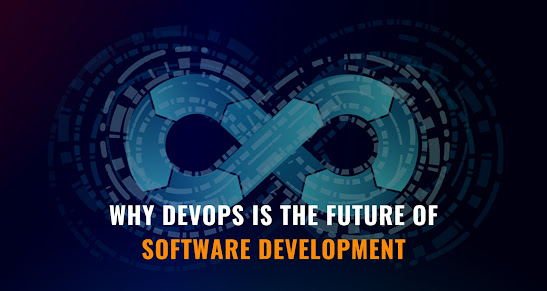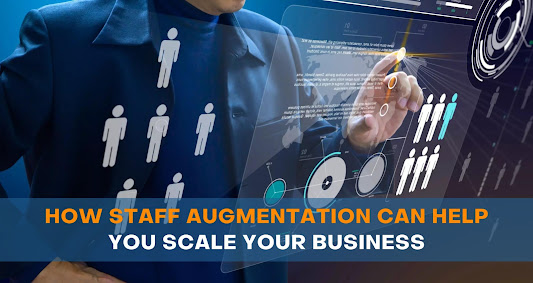Why DevOps is the Future of Software Development
Software delivery will become more flexible, effective, and customer-focused thanks to the integration of software development and IT operations known as DevOps. Automation will be an essential part of DevOps in the future. With automation, DevOps will be more agile and effective thus leading to higher-quality products and an improved customer experience. Also, automation will make it simpler for businesses to expand their services globally. The future of DevOps depends on real-world applications in the field. With several changes to software development, DevOps's reach is expanding. Many IT consulting firms in Chicago can help you with creating the right DevOps solutions. But before that, read on to know the future of DevOps.
DevOps is a rising industry now, and it is predicted that by 2026 it would reach US$ 287.9 billion. The growing need for quicker delivery of software products will influence DevOps in the future. This blog will examine important themes that influence the DevOps environment today to investigate this future in 2023 or beyond.
The future of DevOps
Security-related DevOps
The field of security is strange as there is a higher likelihood of automating problems than benefits. As every automation process in this domain is fundamentally managed, the DevOps concept has a lot of room to grow.
DevOps should be used to ensure the safety of the product being developed in both production and test situations. This serves as the DevOps philosophy's governing structure and ethical standards. DevOps is responsible for implementing security measures that guarantee the integrity and compliance of the application with the organization's security rules. As security is of absolute importance for any organization, maintaining data is crucial to protect it from unauthorized access.
DevOps engineers identify potential dangers that the system may face and strategize about them to secure its security. Engineering also focuses on developing processes that are impervious to vulnerabilities in a bid to safeguard the system from threats. To protect the system, they devote effort to developing and ongoing security testing. Many more actions are also taken, such as monitoring and running a security development lifecycle (SDL).
AI/ML in the DevOps Framework
The cloud-native strategy, microservices architecture, and DevOps methodology have changed the life cycle of the software development. With DevOps offering testing integration testing and production environments, developers can easily recognize any issues before apps are launched.
You can perform builds and automation much better with more in-depth knowledge and control by using AI and ML in the DevOps pipelines. Individuals are switching from DevOps to DataOps and AIOps, which stress applying machine learning and artificial intelligence to study logs and tracking metrics to execute DevOps in a regulated manner.
Many market leaders in AIOps like Moogsoft and BigPanda gather data from various monitoring and logging systems, add artificial intelligence to it, and give the engineer more in-depth understanding and useful information. With AI, DevOps is growing and becoming much easier for developers, operations personnel, and DevOps engineers.
There is a huge range of opportunities available for engineers in the AI/ML sector that boosts task efficiency by implementing technology. DevOps may utilize AI and ML to check the quality, monitor application progress, improve production security, identify vulnerabilities early by running processes or algorithms to prevent process damage, and many other things.
Automation for everyone
Everything takes place online in the modern age. The majority of businesses are evolving to resemble an IT firm that offers a certain set of services. For instance, booking.com used to be a travel agency but is now an IT firm that offers travel services.
Every company's software plays a huge role in generating sales and enhancing business. The foundation of all contemporary businesses is the automation of software deployment and creating the right infrastructure. It is necessary to boost productivity and delivering the best software. That’s why, DevOps has a major impact on all contemporary businesses.
Platform as a service (PaaS)
There are several uses for DevOps concepts in the expanding sector of Platform as a service (PaaS). Gone are the times when one worried about building a complete infrastructure for the application. Nowadays, all that people ask about is the platform that can host their applications.
Application areas for DevOps include configuration management, constant security, and containerization in PaaS solutions. Who knows, maybe in the future, technology might advance to the extent where developers would only need to provide a few markers or entry points in their program which would be enough for the application to be hosted or launched by itself.
DevOps has a very bright future, and many businesses are going to adopt this approach. With new tools and technology being available, DevOps techniques too are changing. We hope we have covered necessary concepts about the possible impact of DevOps on the business in the future.
If you are looking for top DevOps companies in Chicago, USA, then Kat Tech Systems are there for you. Our DevOps team has highly skilled and experienced development and operations specialists who work on your business for a smooth flow. Our innovative technologies can create customized software solutions to boost agility in all business sectors. We can assist you with analysis, design, construction, automation, and implementation.
Want to know more? Feel free to call us at 001-630 233 8643.




Comments
Post a Comment